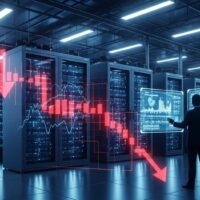Understanding the H-1B Visa Program
The H-1B visa program has long been a focal point in discussions about U.S. immigration policy. It is designed to enable American companies to hire foreign workers in specialty occupations that require expertise in fields like technology, engineering, and science. With the tech industry being a significant driver of the U.S. economy, the program plays a vital role in maintaining the industry’s competitive edge on a global scale.
Key Perspectives from Elon Musk and Vivek Ramaswamy
In recent discussions, two prominent figures, Elon Musk and Vivek Ramaswamy, have offered their insights into the H-1B visa debate. While both have backgrounds connected to technology and innovation, their views on this issue highlight different aspects of the policy’s impact on the U.S. economy and workforce.
Elon Musk’s Standpoint
Elon Musk, the CEO of Tesla and SpaceX, has a unique perspective on the H-1B visa, as someone who has benefitted from it personally. Musk, originally from South Africa, used the U.S. visa system to build his renowned enterprises. His stance on the program is informed by his practical experience as an immigrant and a CEO of world-leading tech companies.
– Advocates for Reform: Musk has expressed that while the H-1B visa program is necessary, it requires reforms to prevent abuse. His advocacy for policy improvement highlights the need for a balanced approach that continues to attract global talent while protecting domestic workers’ interests.
– Supports Streamlining: By promoting a streamlined visa process, Musk underscores the importance of maintaining the U.S.’ competitive position by ensuring that the brightest minds have opportunities to contribute to American innovation.
Vivek Ramaswamy’s Viewpoint
Vivek Ramaswamy, an entrepreneur and political figure, brings a different perspective to the H-1B visa discussion. His analysis of the program focuses on its broader implications on American society and culture.
– Emphasis on American Workers: Ramaswamy has argued for prioritizing the American workforce by limiting the H-1B visa allocations. He believes that a focus on enhancing domestic education and training can reduce the dependency on foreign workers in high-tech industries.
– National Identity: Ramaswamy’s perspective extends beyond economic arguments, suggesting that the integration of foreign workers impacts the cultural and national identity of the U.S.
The Economic Implications of the H-1B Visa
Analyzing the economic impact of the H-1B visa program provides additional depth to the debate. This visa category is crucial for sectors that experience a shortage of qualified professionals in the United States.
Supporting Business Growth
The influx of highly skilled professionals on H-1B visas is vital for supporting businesses across various industries:
- Innovation and Competitiveness: Companies that leverage foreign talent often lead in innovation and competitiveness, contributing significantly to the U.S. economy.
- Addressing Skill Gaps: The H-1B program helps fill critical skill gaps, ensuring that businesses do not face delays in innovation and product development due to a lack of qualified personnel.
Controversies and Challenges
Despite its advantages, the H-1B program faces criticism and obstacles:
- Job Displacement Concerns: Critics argue that the program might result in job displacement or suppress wages for U.S. workers, leading to calls for stricter quotas and regulations.
- Abuse and Oversight: There are documented instances where companies exploit the H-1B system, such as hiring less skilled workers to pay lower wages, necessitating stronger oversight and enforcement mechanisms.
Policy Recommendations and Path Forward
The ongoing debate highlights the need for a nuanced approach to H-1B visa policies, balancing economic needs with social responsibilities.
Potential Reforms
Policy-makers could consider several reforms to enhance the efficacy of the H-1B visa program:
- Revising the Cap: Adjusting the annual cap on H-1B visas in line with current economic conditions and demands could better serve U.S. businesses and workers.
- Enhancing Oversight: Implementing robust oversight to prevent abuses and ensuring compliance with employment standards is critical.
- Encouraging Skill Development: Complementary policies that promote STEM education and training for Americans can help reduce reliance on foreign talent over time.
Maintaining a Global Edge
Ensuring that the U.S. remains a hub for global talent is essential for maintaining its leadership in technology and innovation. Striking a balance between attracting foreign professionals and investing in domestic talent will be crucial.
Conclusion
The H-1B visa debate is complex, encompassing economic, cultural, and social dimensions. Insights from figures like Elon Musk and Vivek Ramaswamy offer valuable perspectives on how the program can be reformed to better serve America’s needs. Balancing protection for domestic workers with the need to attract global talent will require thoughtful policy reforms and cooperative discourse among stakeholders. As the U.S. navigates these challenges, the goal should be to foster an environment where innovation thrives and both native and foreign-born workers reap the benefits of economic growth.








